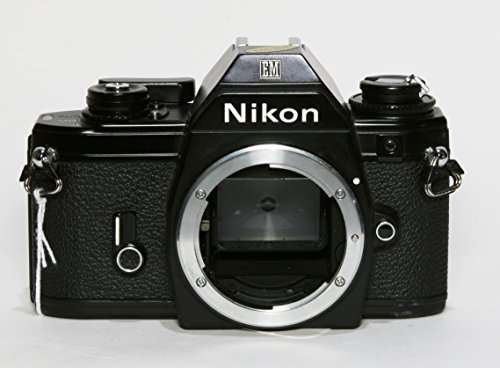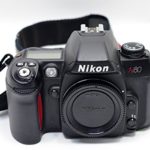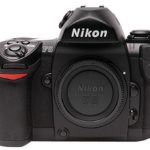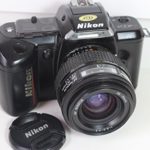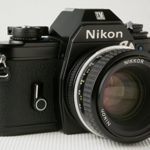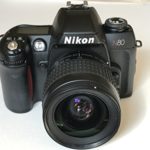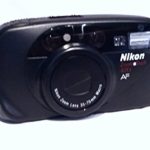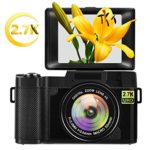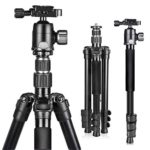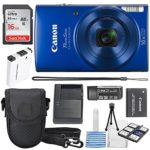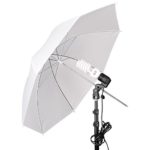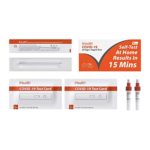Nikon EM 35mm SLR Film Camera
The Nikon EM formed the base of the new line. It was the smallest and cheapest SLR ever made by Nippon Kogaku. It was a battery-powered (two S76 or A76, or one 1/3N) electromechanically controlled manual focus SLR. The EM featured a lightweight and compact hybrid copper aluminum alloy body and fiberglass reinforced polycarbonate plastic top and bottom covers, plus aperture priority semiautomatic exposure control governed by a built-in 60/40 percent centerweighted, silicon photodiode light meter. A left side viewfinder galvanometer needle pointer indicated the exposure on a shutter speed scale. The viewfinder also had Nikon’s standard 3 mm split image rangefinder and 1 mm microprism collar focusing aids, but the focus screen was fixed. The viewfinder is dimmer than those in the semi-professional Nikons since the expensive prisms of the latter were not used. The camera is also fitted with a low-light exposure warning in the form of an audible ‘beep’.
Accessories for the EM included a highly automated dedicated electronic flash unit, the Nikon SB-E (guide number 56/17 (feet/meters) at ASA 100) and a very small power winder, the Nikon MD-E (motorized film advance at 2 frames per second). However, the star of the E-system were a new brand of lenses – the Nikon Series E lenses (discontinued circa 1987). The Series E lens line up in 1980 were a 28 mm f/2.8 wide angle, a 35 mm f2.5 semi-wide angle, a 50 mm f/1.8 normal, a 100 mm f/2.8 short telephoto and a 75-150 mm f/3.5 zoom. These lenses were intended to enhance the EM’s appeal with new users, by being inexpensive but good quality alternatives to the pricey regular Nikkor branded lenses.
- It is supported by E-system.
